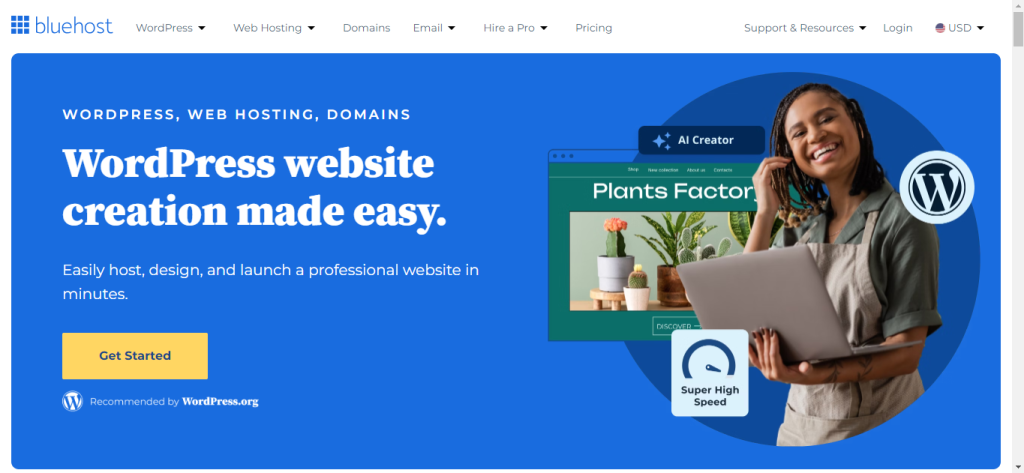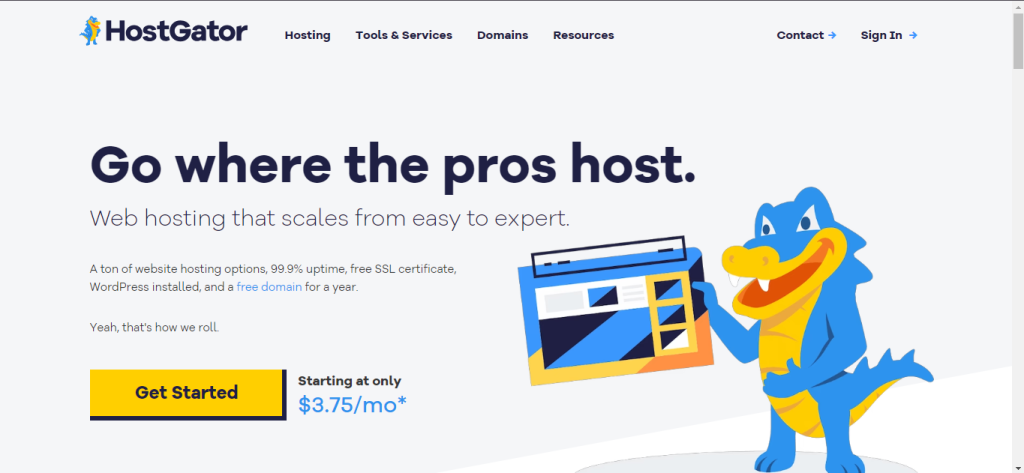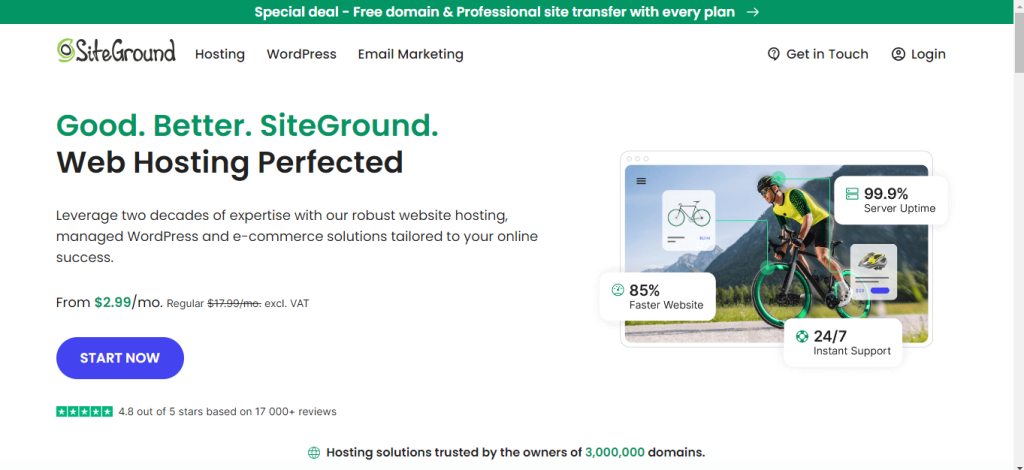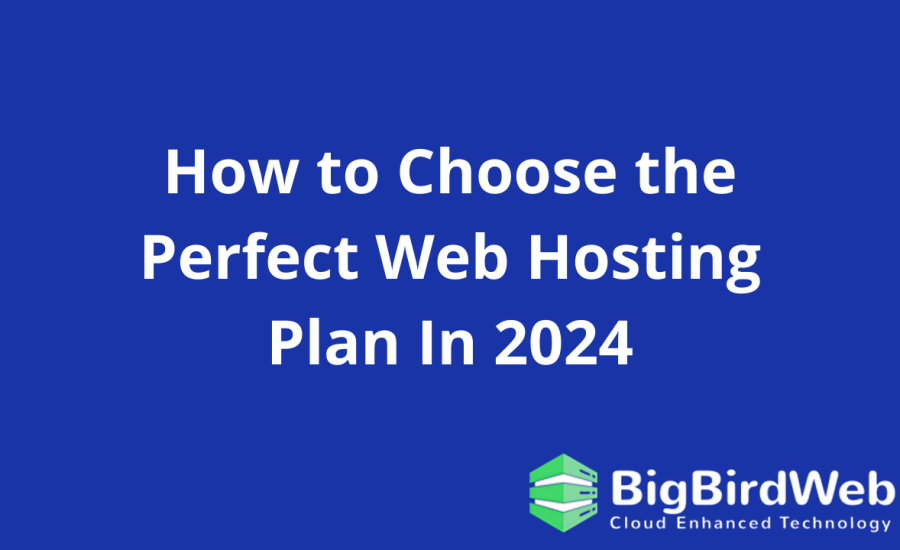Selecting the ideal web hosting plan is crucial for the success of your website. With so many options available, understanding the different types of hosting and what they offer can be challenging. In this article, we’ll guide you through the key factors to consider when choosing a web hosting plan to ensure you make the best decision for your needs.

Table of Contents
Understanding Different Types of Web Hosting Plans
Before diving into the specifics, it’s essential to understand the various types of web hosting plans available:
- Shared Hosting: This is the most common and affordable type of hosting. Your website shares server resources with other websites. It’s ideal for small businesses and personal blogs but may not be suitable for high-traffic sites due to limited resources.
- VPS Hosting: Virtual Private Server (VPS) hosting provides a dedicated portion of server resources, offering more control and flexibility than shared hosting. It’s a good option for growing websites that need more power and customization.
- Dedicated Web Hosting: With dedicated hosting, you have an entire server to yourself. It’s ideal for large websites with high traffic and resource-intensive applications. This type of hosting offers the best performance and security but comes at a higher cost.
- Cloud Hosting: Cloud hosting uses multiple servers to host your website, providing high scalability and reliability. It’s suitable for websites with fluctuating traffic and resource needs.
- Managed Hosting: Managed hosting is a service where the hosting provider takes care of server management, maintenance, and security. It’s ideal for businesses that prefer to focus on their core activities rather than managing their hosting environment.
Key Factors to Consider When Choosing a Web Hosting Plan
1. Performance and Reliability
The performance and reliability of your web hosting plan are critical. Look for a hosting provider that guarantees at least 99.9% uptime. High uptime ensures your website remains accessible to users, which is essential for maintaining a good user experience and SEO rankings. Additionally, consider the server speed and whether the hosting plan includes SSD storage for faster data retrieval.
2. Scalability
Your web hosting plan should be able to grow with your website. Choose a hosting provider that offers easy scalability, allowing you to upgrade your plan as your traffic increases. This is particularly important for businesses expecting rapid growth or seasonal traffic spikes.
3. Security Features
Security is paramount when choosing a web hosting plan. Ensure the hosting provider offers robust security features such as SSL certificates, firewalls, regular backups, and malware scanning. These features protect your website and data from cyber threats and ensure compliance with data protection regulations.
4. Customer Support
Reliable customer support is crucial, especially if you’re new to web hosting or experience technical issues. Look for a hosting provider that offers 24/7 customer support through various channels, including live chat, phone, and email. Responsive and knowledgeable support can save you time and hassle when troubleshooting problems.
5. Cost and Value for Money
While cost is an important factor, it shouldn’t be the sole determinant when choosing a web hosting plan. Evaluate the features and resources included in the plan to ensure you’re getting value for your money. Consider the long-term costs, including renewal rates, and look for any hidden fees.
6. Control and Customization
Depending on your technical expertise and website requirements, you may need different levels of control and customization. VPS and dedicated hosting plans offer more control over server configurations, while managed hosting plans handle technical aspects for you. Choose a plan that aligns with your needs and capabilities.
7. Specific Requirements
Consider any specific requirements your website might have. For example, if you’re running an e-commerce site, you’ll need a hosting plan that supports secure payment processing and offers sufficient resources to handle traffic spikes. If you’re using a specific CMS like WordPress, look for hosting providers that offer optimized plans for that platform.
Comparing Popular Web Hosting Providers
Let’s compare some popular hosting providers to see how they stack up in terms of the factors mentioned above.
1. Bluehost

Bluehost is a well-known hosting provider offering a variety of plans, including shared, VPS, and dedicated hosting.
- Performance and Reliability: 99.99% uptime, SSD storage for faster speeds.
- Scalability: Easy plan upgrades as your website grows.
- Security Features: Free SSL, daily backups, and malware protection.
- Customer Support: 24/7 support via chat, phone, and email.
- Cost and Value: Affordable plans starting at $2.95/month, good value for features offered.
2. HostGator

HostGator is another popular choice with a range of hosting options.
- Performance and Reliability: 99.9% uptime, fast server speeds.
- Scalability: Flexible plans with easy upgrades.
- Security Features: Free SSL, regular backups, and malware scanning.
- Customer Support: 24/7 support via chat, phone, and email.
- Cost and Value: Competitive pricing starting at $2.75/month, excellent value.
3. SiteGround

SiteGround is known for its exceptional customer service and high-performance hosting.
- Performance and Reliability: 99.99% uptime, fast load times with SSD storage.
- Scalability: Plans that scale easily with your website’s needs.
- Security Features: Free SSL, daily backups, and advanced security measures.
- Customer Support: 24/7 support via chat, phone, and email.
- Cost and Value: Plans start at $3.99/month, offering great features and performance.
4. InMotion Hosting

InMotion Hosting offers powerful features and robust performance.
- Performance and Reliability: 99.9% uptime, fast servers with SSD storage.
- Scalability: Easy to scale plans as your website grows.
- Security Features: Free SSL, automatic backups, and advanced security protocols.
- Customer Support: 24/7 support via chat, phone, and email.
- Cost and Value: Competitive pricing starting at $2.29/month, excellent value for money.
5. A2 Hosting

A2 Hosting is known for its speed and performance.
- Performance and Reliability: 99.9% uptime, turbo servers for faster speeds.
- Scalability: Flexible plans that can be easily upgraded.
- Security Features: Free SSL, regular backups, and enhanced security features.
- Customer Support: 24/7 support via chat, phone, and email.
- Cost and Value: Plans start at $2.99/month, great value for performance and features.
FAQs about Web Hosting Plans
1. What is a web hosting plan?
A web hosting plan is a service that allows individuals and organizations to make their websites accessible via the internet by storing their website files on a server. You can also opt for free web hosting.
2. What is the difference between shared hosting and VPS hosting?
Shared hosting involves sharing server resources with other websites, making it affordable but limited in performance. VPS hosting provides a dedicated portion of server resources, offering more control and better performance.
3. Why is uptime important in a web hosting plan?
Uptime refers to the time a website is online and accessible. High uptime ensures your site is available to users, which is crucial for user experience and SEO.
4. What security features should I look for in a web hosting plan?
Look for features such as SSL certificates, firewalls, regular backups, and malware scanning to protect your website from cyber threats.
5. How do I know if a hosting provider offers good customer support?
Check if the hosting provider offers 24/7 support via multiple channels such as live chat, phone, and email. Read reviews to gauge the quality of their support services.
Bonus Content: Tips for Improving Website Performance
- Optimize Images: Compress images to reduce load times without sacrificing quality.
- Enable Caching: Use caching plugins to store static versions of your pages, reducing server load and improving speed.
- Minimize HTTP Requests: Reduce the number of elements on your page, such as scripts and images, to decrease load times.
- Use a Content Delivery Network (CDN): A CDN distributes your site’s content across multiple servers worldwide, improving load times for users across different locations.
- Regular Updates: Keep your website’s software, including CMS and plugins, updated to ensure optimal performance and security.
In conclusion, selecting the right web hosting plan requires careful consideration of various factors, including performance, scalability, security, customer support, cost, and specific requirements. By understanding your website’s needs and comparing different hosting providers, you can choose a web hosting plan that ensures your website runs smoothly and efficiently.
